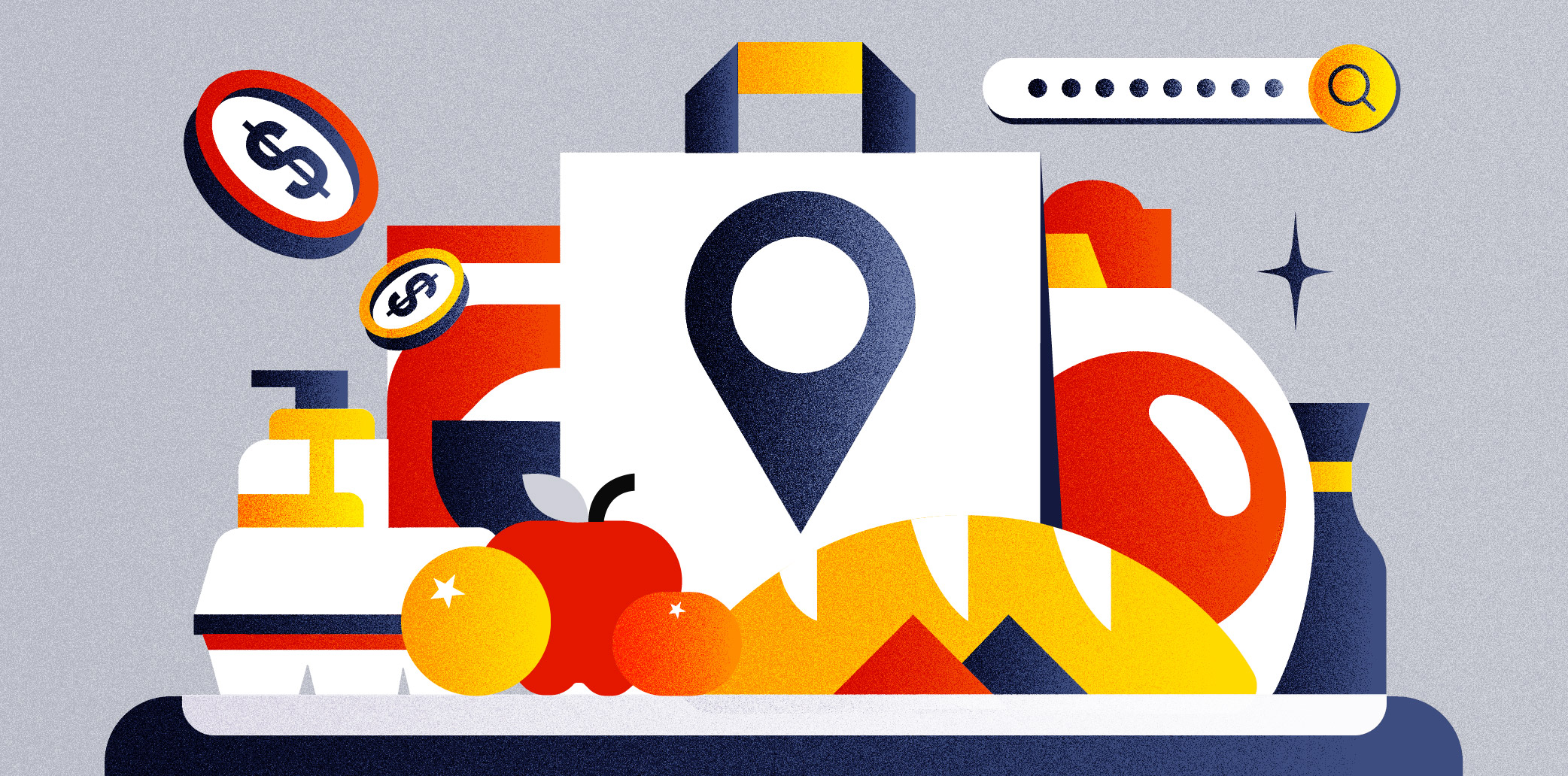Indonesians have no shortage of options when it comes to grocery shopping; from vegetable hawkers and traditional markets, to mom-and-pop stores and supermarkets. These myriad of choices all contribute to the country’s grocery industry, estimated to be valued at USD 169.4 billion in 2022, up from USD 140 billion in 2019, according to a report by the Institute of Grocery Distribution. Lured by growth opportunities in the sector, tech investors, startups, and e-commerce platforms are entering the fray.
Some tech companies are making their foray into the market by acquiring stakes in grocery businesses. One example is GoTo, which bought a 4.76% stake in Matahari Putra Prima (MPPA) through Gojek subsidiary Pradipa Darpa Bangsa last year. MPPA operates over 150 grocery outlets and several retail chains including Hypermart.
Another is e-commerce marketplace Blibli, which in 2021 acquired 51% of IDX-listed retail company Supra Boga Lestari, the operator of premium grocery chains Ranch Market and Farmers Market. “The acquisition of Ranch Market is part of the company’s effort to strengthen omnichannel strategy and enhance the customer journey,” Blibli’s executive vice president of consumer goods Fransisca Krisantia Nugraha told KrASIA.
Amid the backdrop of the burgeoning grocery sector and spurred by the pandemic, online grocery retail looks highly promising. According to a report released by Redseer in February, the e-grocery sector has exceeded USD 5 billion in gross transaction value (GTV), and is projected to reach USD 25 billion GTV by 2025.
Indonesia’s e-grocery segment also has large untapped potential. In another recent report on grocery retail in Indonesia by Statista, the market share of online grocery retail stood at 0.3% in 2020. Based on the study, this figure was projected to reach 0.5% by 2022.
To tap this demand, several major brick-and-mortar grocers have expanded online. Supermarket chain Hypermart, one of the first supermarkets in Indonesia to go online in 2011, has developed an e-grocery portal. It has also created a mobile app, Hypermart Online, that provides grocery delivery and an online-to-offline “click and collect” service for users to pick up online purchases at its brick-and-mortar outlets.
Leading supermarket chains such as SuperIndo and LotteMart have followed suit and created their own shopping apps, including premium grocer Ranch Market Group, which offers a delivery service through its Kesupermarket app.
Tech investors have upped the ante and poured significant money into the sector. Over the past two years alone, dozens of online grocers have raised significant investments, including Segari’s USD 18 million, USD 65 million for HappyFresh, and USD 65.5 million raised by TaniHub.
The reason? It makes business sense for e-commerce platforms to expand into the e-grocery market by leveraging their existing business capabilities. “They already have logistics fleets that can be used to deliver groceries,” said Aldi Adrian Hartanto, a partner at MDI Ventures. He added that going into the grocery market is a natural progression for e-commerce firms and super apps like Blibli and GoTo.
It is not known if these tech-backed online groceries are actually profitable, or just bleeding money. For some, though, sales numbers are looking up. For example, in its 2021 Q3 report, the online grocery business of GoTo-backed MPPA grew 167% year-on-year, contributing about 11% of total sales.
Even so, the e-grocery market is rife with uncertainties that could adversely impact bottom lines of grocers. In Indonesia, issues range from poor logistics infrastructure, policy and regulation challenges to uneven digital payment adoption. “A sizable population still don’t have bank accounts, so the cash on delivery (COD) payment method is important in smaller cities,” said Hartanto.
For tech investors, backing a grocery business might not be as lucrative as previously thought. One reason could be high operating expenses. China’s Dingdong is an example of how high costs can make an online grocery unprofitable despite posting revenue growth. In its latest Q4 2021 earnings report, the New York-listed company recorded a net loss of RMB 1.1 billion (USD 173.6 million) in the three months ended December 31, fueled by narrow gross margins and high cost for expansion. Dingdong hasn’t turned a profit since it began offering e-grocery services in 2019.
Profitability is also not a given despite the growth prospects of the online grocery sector. For example, a higher rate of online grocery sales could contrarily lead to increases in operational expenditure and result in losses, based on a 2021 report of European food retailers by credit insurance company, Euler Hermes.
The final issue is that higher sales driven by the pandemic can result in grocers carrying more inventory, weighing down profit margins and growth, based on a 2021 report by Shanghai-based Daxue Consulting.
One thing is for sure: online grocery services in Indonesia do not seem to be slowing. In January, Bukalapak teamed up with conglomerate CT Corp to form another new online grocery joint venture.
